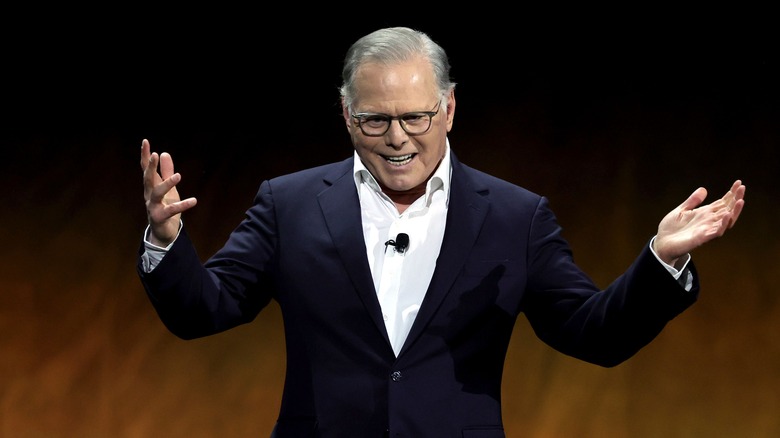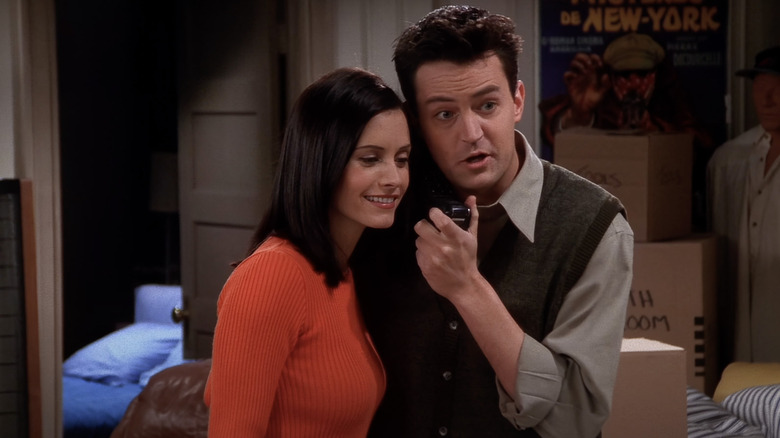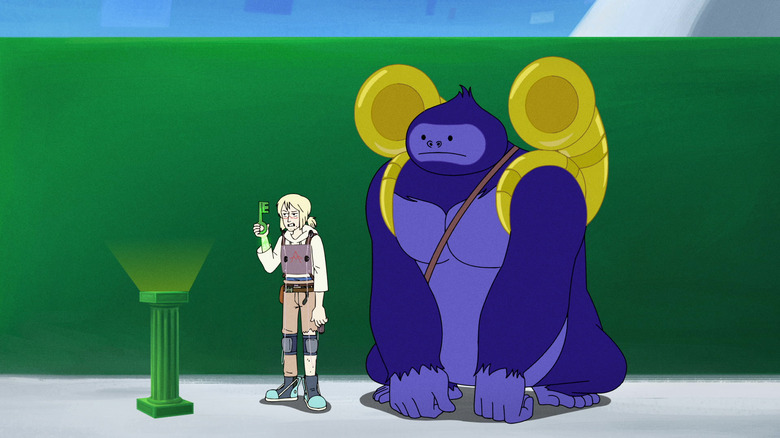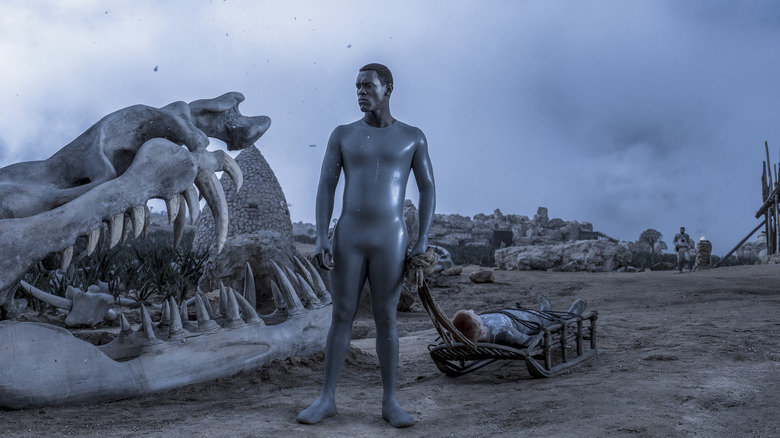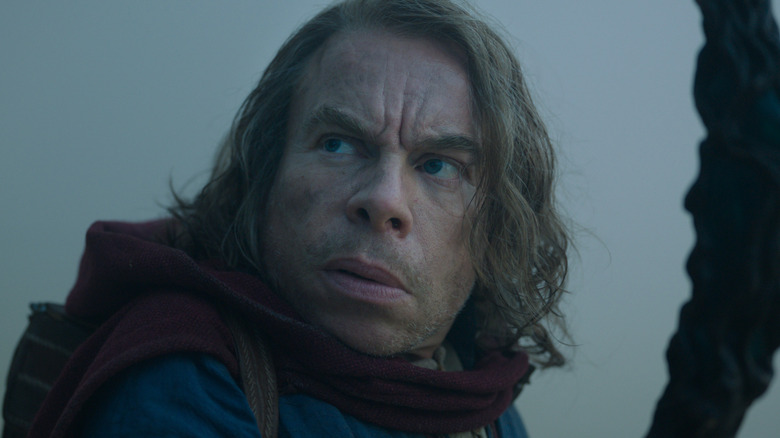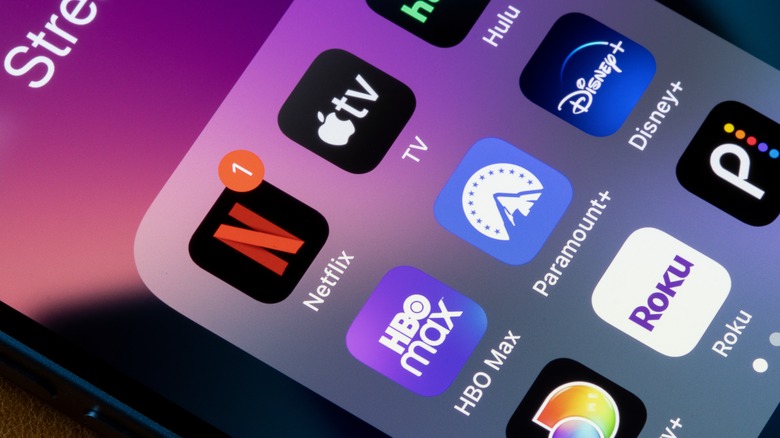Why The Heck Do Streamers Keep Removing Original Content: How Netflix, Max, & More Decide
Something is rotten on your favorite streaming service.
With the advent of high-speed internet, consumers became interested in digesting content in more novel ways. Services like YouTube allow viewers worldwide to watch videos on demand with a few simple clicks. While there were several streaming and video-on-demand services available prior to YouTube, it was the future Google-owned video-sharing company that successfully planted the idea to the masses that entertainment could be consumed within seconds.
Then came Netflix, which confidently pivoted from DVD-by-mail into a streaming service, allowing viewers to watch their favorite shows and movies from any device with an internet connection. Reed Hastings and Marc Randolph, the co-founders of Netflix were pioneers, frontiersmen who changed the entire entertainment landscape. As Netflix began to grow, other media giants, like Disney and Paramount took notice, realizing that licensing out their content was the equivalent of succumbing to the competition. Netflix, in turn, had the foresight to realize that they had to produce their own content fast if they wanted to outlive legacy media.
Within years services like Max, Disney+, Paramount+, and more emerged as key players interested in taking a piece of the streaming pie. In a bid to draw in subscribers, studios and services began to pump out as much as they could, effectively reducing the labor of millions of creatives into content, commodities that could only succeed based on their ROI.
But the bubble has burst. Now, there's a chance that a TV show or movie your friend recommended, which was released exclusively on your favorite streaming service, isn't available to watch anymore As the streaming landscape continues to change Max, Disney+, and more have no choice but to remove original content to save as much money as possible. And we have none other than Warner Bros. Discovery CEO David Zaslav to thank for giving Hollywood this idea.
Why licensed shows leave Netflix
It's not uncommon for streaming services to remove content. Most viewers have likely dealt with the emotional blow that comes with searching for a movie or TV show on their favorite streaming service, only to realize that it's no longer there. With Netflix, this is especially the case, as a decent portion of the streaming giant's library is licensed, meaning the streaming service is paying a fee to the content's studio or distributor to have it on their platform. When the contract between Netflix and the studio expires, it can either be renewed or canceled, the latter forcing non-original shows to leave the platform. On their help center, Netflix says that several factors can play into a show's license not being renewed, such as a lack of popularity in a certain region, or the cost associated with the content.
In recent years, licensed content being removed is typically because a new streaming service is being launched by a competitive media company and they simply want to host their formerly licensed content on their own platform. Audiences know and understand this, which is why it wasn't all too surprising when Netflix was forced to remove the Warner Bros.-produced "Friends," which would later find a home on Max — a streaming service owned and operated by Warner Bros.
In 2023, it's somewhat a rarity that English-language licensed content is available on streaming services considering that almost every western media giant boasts their own platform. However, what's really perplexing is why services like Netflix, Max, and Disney+ are purging their own original shows — content that they exclusively own the rights to. After all, original content was created so streaming services could boost their catalog without having to pay licensing fees for content outside their ecosystem.
Warner Bros. started the trend of removing original content
After months of anticipation, Warner Bros. Discovery launched HBO Max in May 2020, pitching itself as a one-stop shop for quality, prestigious content, and IP fare. It was the home of "Harry Potter," "Rick and Morty," and "The Sopranos" — the perfect streaming service for viewers of all ages. While the launch was ceremonious, Warner Bros. Discovery's pocketbooks were filled with woes. After AT&T decided to divest itself from Warner Media, the media conglomerate merged with Discovery, Inc. to create Warner Bros. Discovery, with David Zaslav brought on board as CEO to steer the ship.
In a bid to cut costs, Zaslav examined HBO Max's catalog with a fine toothcomb in 2022 and decided to purge the service of several key pieces of content. This initial purge from August 2022 included original shows like "Infinity Train" and "Ellen's Next Great Designer." Just like traditional networks. shows that debut on streaming still have to pay writers and stars residuals. To save costs, i.e to not pay the creatives behind the content they produced, HBO Max made the decision to remove several original shows, a move that CNN said at the time would save the company $100 million annually. For Warner Bros. Discovery and several other streaming services, it's important that viewers engage with projects. If it's collecting dust, it's time to say goodbye.
In August 2022, Warner Bros. Discovery was hell-bent on cutting $3 billion in costs, a move that included layoffs, canning near-complete productions like "Scoob! Holiday Haunt" and "Batgirl" to rake in on tax writeoffs, and removing original content. Their tirade against their own creatives didn't end there, as the summer of 2023 paints an even more chaotic trajectory for the company.
Warner Bros. originals can be found on other streaming services
Warner Bros. Discovery is in desperate need of a win. CNBC says that the company ended its first quarter with over $49 billion in debt. Even amidst layoffs and other cost-cutting measures, Warner Bros. Discovery simply isn't making enough back at the box office to make a solid dent in its debt. Their DC universe is suffering — both "The Flash" and "Shazam! Fury of the Gods" bombed at the box office. The only real success they've seen this year is "Evil Dead Rise," a film that grossed over $60M domestically.
Their streaming division is also in a crisis. HBO Max is drastically different now than it was in 2022. For one, the service is now called Max. Since the initial purge of content, a myriad of other original shows has been pulled, including the likes of "Westworld" and "The Time Traveler's Wife." Luckily, Warner Bros. Discovery has found a way to make more money off of them, even if it means reducing the exclusivity and prestige that comes with the HBO brand. Tubi, an ad-supported streaming service with over 60 million active users, signed a content deal with Warner Bros. Discovery in January 2023 to host their originals. Audiences in the United States can now watch shows like "Raised by Wolves" and "The Nevers," content originally meant for HBO Max, on Tubi for free.
This deal is certainly advantageous for Warner Bros. Discovery, which desperately needs the ad dollars. For Tubi, this means a flurry of new viewers eager to watch (or discover) Warner Bros. shows. But the story doesn't end there, as Warner Bros. Discovery is aggressively dipping its toes into licensing, sending shows like Issa Rae's "Insecure" to competitors like Netflix, diminishing the exclusivity that came with being an HBO show.
Disney+ is cutting costs by shedding its originals
Warner Bros. Discovery was the first to strip its service of original content but it certainly isn't the last. Disney+ is also joining in on the trend, pulling the likes of "Willow," "Turner & Hooch," and "Artemis Fowl" from its service, among others. Unlike Warner Bros. Discovery, it doesn't look like Disney+ has plans to shop around its shows to cash in on licensing fees. Just like Warner Bros. Discovery (or pretty much any major media conglomerate), Disney is going through hard times. They too have been receiving less-than-stellar receipts at the box office — the $300M "Indiana Jones and the Dial of Destiny" is a bomb, as is Pixar's "Elemental."
Late 2022 saw CEO Bob Chapek unceremoniously ousted from the company, with former CEO Bob Iger now back at the helm, following through with promises of aggressive layoffs and cost-cutting measures. It also doesn't help that Disney+ is losing money, something that Iger hopes will change come 2024, per CNBC. For now, as the company restructures itself amidst these economic anxieties, the shedding of original content seems to be a priority. Once again, this is an effort to reduce the amount of royalties that are associated with high-value productions. Note that most of the original content that has been purged is based on existing IP, meaning residuals have to trickle down farther to original creators than most shows or movies.
The Hollywood Reporter says that during Disney's third 2023 quarter, the company will be taking a $1.5B writedown, thanks in part to removing over 30 projects from Disney+ and Hulu. It's possible that Disney+ and Hulu, which are set to become one service in the future, will remove even more content in the future.
Streaming is in a dire state right now
The streaming landscape is a mess right now and the buck doesn't stop at Max or Disney+ — even Paramount+ is shedding content, canceling shows like "Star Trek: Prodigy" and "Grease: Rise of the Pink Ladies" and removing them from the service entirely. In short: content that debuts on streaming could become lost media, as audiences may not have the legal means to watch their favorite shows or movies ever again. In a funny way, the rush to make more content has led to the evisceration of said content.
Each streaming service has its own reason for removing original shows. Some want to pay fewer residuals, while others want to profit from licensing fees. Ultimately, whatever a company produces is, it's considered an asset, which is why Warner Bros. Discovery and Disney are happy to pull content off their platforms and write it down, meaning it is no longer as profitable as it once was. From a financial point of view, it makes sense to remove shows that are no longer performing well. It's even better to license them out to ad-supported services like TUBI, where both parties profit. Warner Bros. Discovery is throwing away the idea of exclusivity, allowing users to be former exclusives like "Raised by Wolves" on their favorite digital storefronts like Apple TV.
The cold hard truth is that, in a bid to boost and launch their own streaming services, companies overspent on productions that are no longer financially viable. At first, streaming was a boon of content. Now, every company has its own streaming service, and as consumers become more cash-strapped, they're less likely to subscribe to every service.
What the future of streaming looks like
This is not the future of entertainment distribution that viewers signed up for. The beauty of streaming was that everything could be available, all the time. In the early days of streaming, services like Netflix and Hulu allowed viewers to watch all sorts of shows, movies, and comedy specials — some original, some licensed. It was the best of both worlds. Now, with so many services available, it can be difficult and costly for the average consumer to have every service. Still, the idea of being able to watch anything you wanted persisted... until Warner Bros. Discovery took the genie out of the bottle, showing companies that they could recoup losses by simply removing content.
This is definitely a blow to creatives, who not only lose out on residuals but also the hard work they've poured into their respective projects. Shows and films that took years to make can now be wiped out in an instant, making all efforts moot. As devastating as that sounds, streaming services are listening. "Howard," a documentary on songwriter Howard Ashman, is being kept on Disney+ despite being set to get the can, thanks in part to fan feedback, per Deadline.
Beyond that, certain projects will likely continue to exist on ad-supported streaming services, like Tubi and Roku. After all, these companies still want to make money on their projects. Some shows can even be purchased on digital platforms, meaning there are still legal ways to watch them. In a way, we're returning to cable, where content from different production companies can exist on the same platform. Note that several streaming services, like Prime Video and Paramount+, have ad-supported verticals as well, like Freevee and Pluto TV, where viewers can enjoy "exclusive" content for free.
